The East Jerusalem Hospitals Network (EJHN) was established in 1997 under the initiative, leadership, and guidance of the late Faisal Husseini, with a strategic vision to unify the health sector in East Jerusalem and consolidate the presence of its hospitals into a network that could highlight their roles collectively within the Palestinian health care delivery system.
The East Jerusalem Hospital Network consists of six hospitals: Makassed Islamic Charitable Society Hospital, Augusta Victoria Hospital, Palestine Red Crescent Society Hospital, St John of Jerusalem Eye Hospital Group, Jerusalem Princess Basma Centre, and Saint Joseph Hospital. These hospitals are the main providers of tertiary health care for persons referred by the Palestinian Ministry of Health for services unavailable in the West Bank and Gaza. In addition, the network has played a leading role in the development of the overall Palestinian health care system and the training of health care workers and specialists. On an ongoing basis, the network makes collaborative efforts to ensure greater coordination of services and improve the quality of patient care.
At its establishment, the network was supported locally through the Friends of East Jerusalem Hospitals Committee, which consisted of a group of volunteers who gathered first at the Orient House to start several fundraising initiatives to help the hospitals. These initiatives led to the creation of a small endowment from which the hospitals still benefit today. Internationally, the network has been supported by several parties, including the European Union, the UNDP, and the World Health Organization (WHO).
From the very beginning, WHO endorsed the establishment of the EJHN and embarked on a quality improvement process that led to a certification granted by the International Organization for Standardization (ISO) for most administrative and medical services. The effort was made possible through a project funded by the European Commission. This resulted in quality improvement processes in all six hospitals. Preparing for international accreditation was a highly demanding process that required the hospitals to comply with clinical and nonclinical standards and needed the development of policies and procedures, training of staff, and making special adjustments to ensure patient safety and the availability of specific medical equipment and supplies. In order to prepare the hospitals for JCI accreditation, WHO facilitated various training opportunities, including direct training from JCI and on-site consultations by JCI mock surveyors and external, high-quality professionals. In addition, WHO facilitated regular meetings and workshops among the EJHN quality coordinators and their teams to promote an environment of joint learning and information-sharing among the member facilities of the network. The determination of the EJHN to implement this plan showed the network members’ commitment to continually work on improving administrative processes and patient care. At the same time, the culture of safety and quality that was enhanced through this process has provided a safe and efficient work environment that contributes to the satisfaction of health workers. Special emphasis has been given to respecting the rights of patients and their families and to involving them as partners in the process of care.
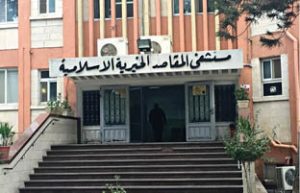
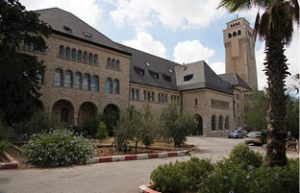
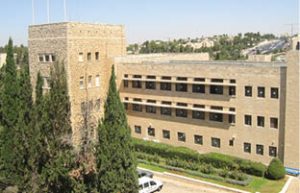
Today, members of the EJHN continue in their capacity-development processes at all levels to become national leaders in their areas of specialty, providing some unique medical services that are not available anywhere else within Palestine. This is in addition to the important role of continuing medical education, including the teaching of post-graduate medical students as well as nursing students. This role is critical for the development of the health sector in Palestine and for improving the care that is being provided. The satisfaction of patients will make an important contribution to the effectiveness of EJHN facilities as teaching institutions.
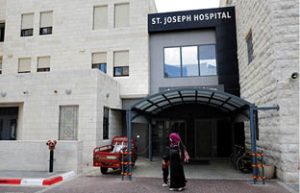
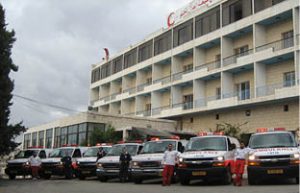
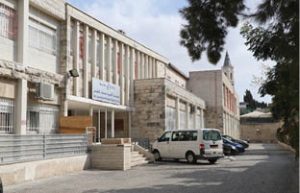
The EJHN has a forum for debate, discussion, and information exchange on issues that are of common interest to all six hospitals and for joint action in a challenging political environment in which only a few Palestinian institutions are left and able to operate. This reality makes it difficult for them to fulfill their humanitarian mission to serve Palestinian patients and to remain independent nonprofit institutions without political or other interference.
There are a number of issues that continue to face the EJHN. The most challenging are listed here.
- The ongoing financial crisis faced by all members of the network has been tremendously exacerbated as a result of the US administration’s decision under Trump to halt its financial support in the amount of US$ 25 million annually, earmarked for East Jerusalem hospitals in payment of bills for the treatment of patients referred to these hospitals by the Palestinian Ministry of Health. Elliott Abrams, from the US Council on Foreign Relations, questions the wisdom behind such a decision: “I don’t actually understand why the administration decided to cut the hospital funding, especially when the Taylor Force Act contains the carve-out. That law states that ‘the limitation on assistance under subsection (a) shall not apply to…payments made to the East Jerusalem Hospital Network.’ There is even a cold, political argument for continuing the aid: in the context of wide aid cuts, the continuation of aid to Augusta Victoria would allow the United States government to say ‘our cuts were inevitable due to misconduct and poor governance by the PA and PLO leadership, but because we care about Palestinians more than their leaders do we decided to continue funding the hospital network.’ So I believe the decision to cut the funding to the East Jerusalem Hospital Network was a mistake. Mistakes can be rectified, and in this case, I hope the administration reconsiders and provides the funds.”
- Accessibility to these hospitals is unpredictable for patients from the West Bank and Gaza, and also for the staff who work in these hospitals who come from various parts of the West Bank. The complicated system of permits and barriers imposed by Israel makes it difficult and sometimes impossible for patients to enter Jerusalem for treatment purposes. According to WHO, only about 54 percent of patients from Gaza were granted permits in 2017. This ration increased in 2018 to about 62 percent. Parents from Gaza, whose children are sick and sometimes terminally ill with cancer, are often not allowed to accompany their children during their treatment period because, as claimed by the Israeli authorities, “they present a security threat to the State of Israel”!!
- There is limited or no space to take in the ever-increasing number of patients and companions. Many of the services provided at the East Jerusalem hospitals are unique and thus demand is high and beyond available capacity.
- There needs to be an increase in human resources and expertise in the various medical fields in which these hospitals are specialized. The hospitals frequently have to train their own doctors, nurses, and technologists, be it at the foundation level or when they continue their education.
- Various restrictions, including high taxes, are imposed by the Israeli occupation of Palestinian East Jerusalem.
Despite all these challenges, the EJHN continues to make great efforts to fulfill its mission of caring for the sick under occupation.


